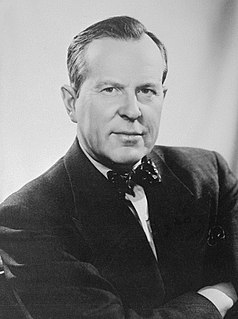A Quote by Misty Upham
If either man or woman would realize that the full power of personal beauty, it must be by cherishing noble thoughts and hopes and purposes; by having something to do and something to live for that is worthy of humanity, and which, by expanding and symmetry to the body which contains it.
Related Quotes
The true and not despairing Friend will address his Friend in some such terms as these. "I never asked thy leave to let me love thee,--I have a right. I love thee not as something private and personal, which is your own, but as something universal and worthy of love, which I have found. O, how I think of you! You are purely good, --you are infinitely good. I can trust you forever. I did not think that humanity was so rich. Give me an opportunity to live.
You will want a book which contains not man's thoughts, but God's - not a book that may amuse you, but a book that can save you - not even a book that can instruct you, but a book on which you can venture an eternity - not only a book which can give relief to your spirit, but redemption to your soul - a book which contains salvation, and conveys it to you, one which shall at once be the Saviour's book and the sinner's.
... regard this body as a machine which, having been made by the hand of God, is incomparably better ordered than any machine that can be devised by man, and contains in itself movements more wonderful than those in any machine. ... it is for all practical purposes impossible for a machine to have enough organs to make it act in all the contingencies of life in the way in which our reason makes us act.
That which befits us, embosomed in beauty and wonder as we are, is cheerfulness, and courage, and the endeavor to realize our aspirations. Shall not the heart which has received so much, trust the Power by which it lives? May it not quit other leadings, and listen to the Soul that has guided it so gently, and taught it so much, secure that the future will be worthy of the past?
No one can give a definition of the soul. But we know what it feels like. The soul is the sense of something higher than ourselves, something that stirs in us thoughts, hopes, and aspirations which go out to the world of goodness, truth and beauty. The soul is a burning desire to breathe in this world of light and never to lose it--to remain children of light.
When I started, every film got a full theatrical distribution. Today, almost no low budget films, maybe two or three a year, will get a full theatrical distribution. We've been frozen out of that, which means they must be aware that for a full theatrical distribution it either has to be something like Saw or some exploitation film of today or an extremely well made personal film.
In their struggle for the ethical good, teachers of religion must have the stature to give up the doctrine of a personal god, that is, give up that source of fear and hope which in the past placed such vast power in the hands of priests. In their labors they will have to avail themselves of those forces which are capable of cultivating the Good, the True, and the Beautiful in humanity itself. This is, to be sure, a more difficult but an incomparably more worthy task.
There are three motives for which we live; we live for the body, we live for the mind, we live for the soul. No one of these is better or holier than the other; all are alike desirable, and no one of the three—body, mind, or soul—can live fully if either of the others is cut short of full life and expression.
It is with art as with love: How can a man of the world,with all his distractions, keep the inwardness which an artist must possess if he hopes to attain perfection? That inwardness which the spectator must share if he is to understand the work as the artist wishes and hopes... Believe me, talents are like virtues; either you must love them for their own sake or renounce them altogether. And they are only recognized and rewarded when we have practised them in secret, like a dangerous mystery."
I believe that there are three conditions to a woman’s beauty. First, you must realize that not all women are beautiful all of the time. Sometimes beauty comes on a subconscious level. When she is in love, or has met someone new and exciting, she shines. Second, you must understand that life is unfair. Beauty is something that, for some, must be worked at. The third condition is luck. Some women can just be lucky.
Mankind occurs as male or female, as something or nothing. Woman has no share in ontological reality, no relation to the thing-in-itself, which, in the deepest interpretation, is the absolute, is God. Man in his highest form, the genius, has such a relation, and for him the absolute is either the conception of the highest worth of existence, in which case he is a philosopher; or it is the wonderful fairyland of dreams, the kingdom of absolute beauty, and then he is an artist.
If there be a pleasure on earth which angels cannot enjoy, and which they might almost envy man the possession of, it is the power of relieving distress--if there be a pain which devils might pity man for enduring, it is the death-bed reflection that we have possessed the power of doing good, but that we have abused and perverted it to purposes of ill.



































